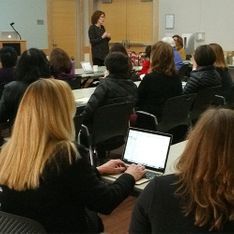We have interviewed over 200 first-generation college students and asked them about the academic and social struggles they faced and how they overcame them. Below are some takeaways that we believe will help you guide first-generation college students to success.
One of the most common problem we heard was the lack of awareness of resources and solutions. This is either because they don’t want to ask for help, they try one solution and it doesn’t work so they try to tough it out, or they don’t know where to look for help. For example, when first-generation college students are deciding on a major, they often don’t realize that they have many other resources for making this decision other than their assigned freshman advisor. They don’t realize they can go speak with career services, academic department heads, the academic resource center, and other resources the school provides.
It’s important to show your first-generation clients what offices they can get academic help from so they can avoid falling into academic pitfalls early in their career like this student at the University of Pennsylvania did.
“There are many resources like the Weingarten [Learning Resources Center]. It’s also easy to contact T.A.’s and they are oftentimes willing to go out of their way to help you understand the material and take some of their personal time to help you. Even though there are a lot of resources, I wouldn’t say that I capitalized on them. My freshman year was mostly trial and error and I made some academic mistakes, but I feel like I’ve learned a lot from it. It’s worth asking for help because it’s everywhere. I wasn’t quite prepared for the constant stream of large tests and I think that’s what you have to prepare yourself for.”
The problem of not knowing where to look for resources also comes from students not understanding what networking is – whether they do it naturally or not – and how to use it to their advantage. This can be very important with looking for research positions, internships, or other opportunities on campus, as well as just having connections they can reach out to on campus.
Tucker Glotzbach is co-founder of the online college guide, Induck College Impressions (www.induck.co). He has personally interviewed over 1,000 college students and strives to provide the most comprehensive information on the student experience at the schools they cover.






